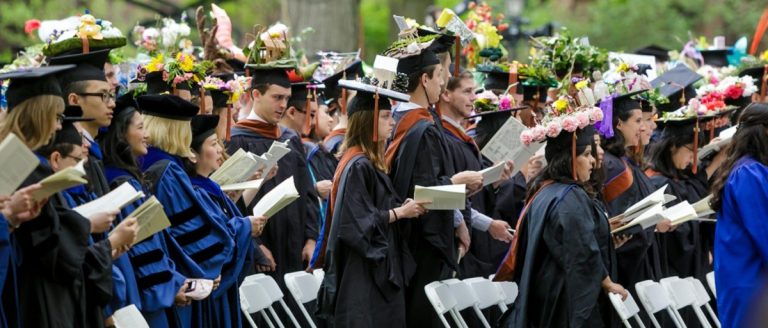
The head of the UK-based Universities and Colleges Admissions Service (UCAS) has one advice for students in universities – take your time to find your niche in today’s workplace.
Speaking on a BBC radio programme, Mary Curnock Cook said students about to graduate should slow down and not worry too much about getting a job while still studying.
“I’m not saying for a minute everyone should leave university and have a doss for a while,” Cook said.
“But I do think it’s unhelpful the success of universities in preparing people for graduate employment is measured by the number of people who are in graduate jobs after six months.”
If one can afford it, it's good advice- Take time to find a job,#students urged https://t.co/DyZoNGnDTb
— Vittoria Lutje 💙🇮🇹🇺🇦 (@vlutje1) April 26, 2017
Instead of being stressed while looking for high-paying, high-flying jobs, students should take their time to find their “career niche”, he said.
He said life was “not all about the lawyers, the medics and the people going into financial services”.
“Lots of people need time to find their niche in the 21st-century workplace.”
The process could even involve job-hopping up to six or seven times in your career to allow a person time to figure out a suitable occupation and employment sector.
#University #Graduates should wait 6 months before getting a #Job… https://t.co/pVe6jiJyZC via @MailOnline @UCAS_Online #Student
— Danny Deol (@DannyDeol) April 25, 2017
Cook’s advice comes in the wake of recent reports of the worrying state of British university students’ mental health, as well as the rising number of suicides on campus.
A report by the Higher Education Policy Institute last year found one in 10 students suffer from a “diagnosable mental illness” and called for universities to step up their mental well-being services for students.
One possible factor behind this state of affairs is said to be a student’s inability to cope with the demands of university and their preparation to join an increasingly competitive workforce.
Cook previously imparted advice via Daily Telegraph concerning the “obsession with graduate employment”, saying the students were “too fixated” on this career-driven mentality.
Instead, she called for students to consider a post-graduation plan of doing temporary or volunteer work, and even to move back home with parents to carefully mull their options before diving into a permanent job.
“… I think you get the best out of a university experience when you study something that just sets your brain on fire. Something that motivates you, that gets you really engaged with the subject.
Liked this? Then you’ll love these…
Beyond the perfect Instagram feed: The darker side of campus life for international students
Students are stressed and can’t afford to buy food because of university debts – survey







